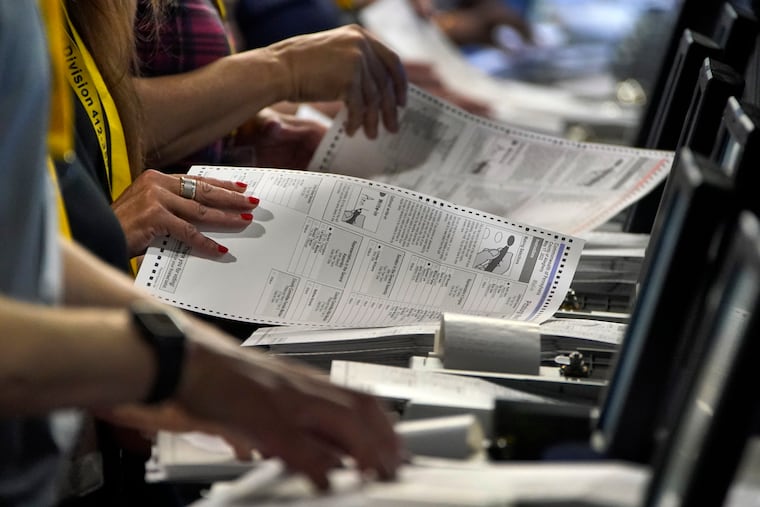Pennsylvania’s budget for county election offices will have unintended consequences
The state needs to advance not just long-term funding but also pre-Election Day ballot processing.

Gov. Tom Wolf recently signed into law a 2022-2023 budget that includes $45 million in funding for Pennsylvania county election offices.
The bipartisan compromise rests on a simple premise: county election offices will no longer be allowed to accept funding from private groups — a step that some jurisdictions have taken to address the rising costs of holding elections. To fill the resource gap left in their absence, the state government will provide funds for county election offices in the next fiscal year.
This innovative solution to the fight over private funding is good policy. Elections are a wholly governmental function and they should be funded accordingly. The ability of Pennsylvania’s lawmakers to work across the aisle on election funding is a positive sign for the future of elections in the commonwealth.
But the unintended consequences of the law loom large. While the level of financial support is unprecedented, there is nothing in the measure preventing counties from decreasing funding by an equivalent amount. Election offices need to have confidence that the same level of support will be continued in future budgets.
The biggest failure of the new law is that it did not change a restriction that prevents election boards from processing mail-in ballots until Election Day, not before — something election officials in Pennsylvania have been begging lawmakers to reconsider for years.
These limits on so-called pre-canvassing prevent election officials from getting a head start on preparing mail-in ballots for tabulation, including taking such routine steps as removing ballots from their envelopes. The Bipartisan Policy Center recommends that all states permit at least seven days of pre-canvassing, as it facilitates steadfast results reporting, lowers costs, and reduces administrative burdens.
Rather than give counties this powerful means of improving accuracy and trust in elections, the strings attached to the new funding could do the opposite.
To be eligible for funding, counties must begin processing mail ballots at 7 a.m. on Election Day and “continue without interruption” until every mail ballot received by that time is pre-canvassed. In counties without the staff on hand to work in shifts, officials would have to essentially work nonstop (in some cases, for days on end) to meet the requirement, raising the likelihood of mistakes.
» READ MORE: Pa. leaders should spend money on improving our elections, not trying to expose problems that don’t exist
Election officials across the commonwealth have been asking for additional funding for years. But with all the strings attached, it will be up to each county election board to decide if the additional funding is worth the burden of the new requirements.
We applaud the ability of Pennsylvania’s lawmakers to work across the aisle on election funding, but to more meaningfully enhance trust in Pennsylvania’s elections, lawmakers should heed the advice of election professionals. The state needs to advance not just long-term funding but also pre-Election Day ballot processing.
Seth Bluestein is one of three members of the board of elections in charge of elections and voter registration for the city of Philadelphia. Rachel Orey is associate director of the Elections Project at the Bipartisan Policy Center.